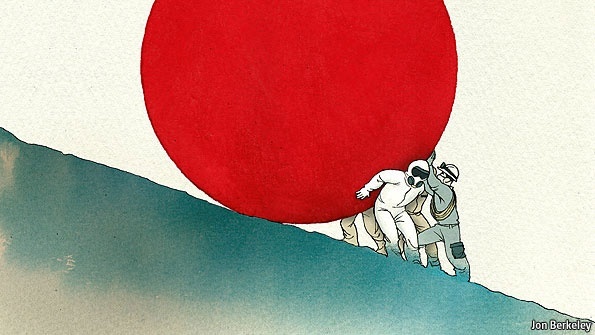- Politics
- Announcements Wahlfieber-Team
- USA (English - German)
- Politics Switzerland
- Upcoming Markets
- Polls and results
- Election analyses Germany
- Election analyses Austria - Switzerland
- European election analyses
- International election analyses
- Presidential election analyses
- Polls and Results (USA 2020)
- Sports & other topics
- Interview-Forum
Bebt die Erde verstärkt? Erdbeben 8,8 in Japan
-
eine Erinnerung und Ausblick
http://www.youtube.com/watch?v=d9F8ph4D3FY&feature=related
-
Sie funzt noch
http://www.tepco.co.jp/nu/f1-np/camera/index-j.html
06.00 Uhr
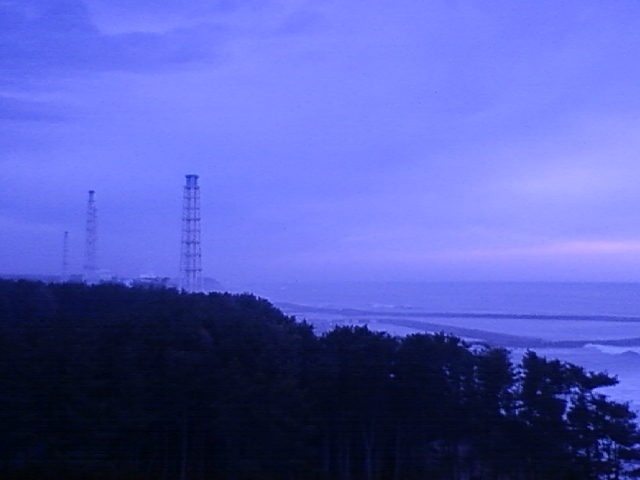
07.00 Uhr
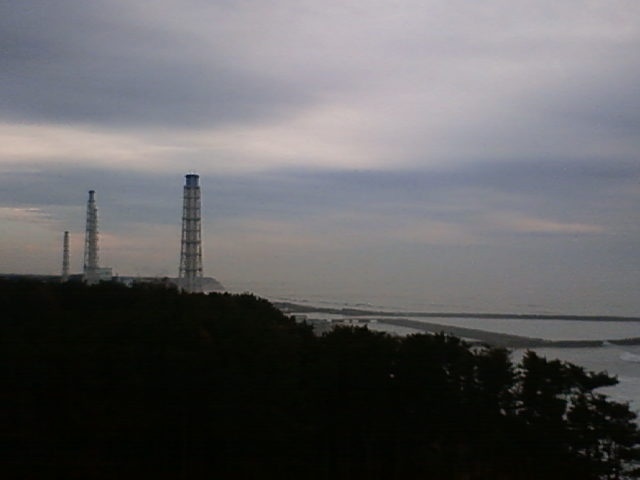
Buchtipp:
http://en.wikipedia.org/wiki/On_the_Beach_(novel)
On the Beach is a post-apocalyptic [wikipedia.org] end-of-the-world novel written by British-Australian author Nevil Shute [wikipedia.org] after he had emigrated to Australia [wikipedia.org]. It was published in 1957.
-
-
http://www3.nhk.or.jp/daily/english/19_11.html
A second group of 100 Tokyo firefighters is heading for the Fukushima Daiichi nuclear power plant to join operations to cool down the reactors.
The second contingent will replace the first group of 139 members. Officials say the rotation is designed to ensure the safety of firefighters working in an environment in which high levels of radiation have been detected. -
http://www.guardian.co.uk/world/2011/mar/11/japan-declares-nuclear-emergency-qua ke [co.uk]
http://e.nikkei.com/e/fr/tnks/Nni20110311D11JF302.htm
ECCS aktiviert in Fukushima
http://www.nucleartourist.com/systems/eccs.htm
ECCS allgemein:
http://en.wikipedia.org/wiki/Emergency_Core_Cooling_System#Emergency_Core_Coolin g_System [wikipedia.org]
Detaillierte Beschreibung des ECCS hier:
http://en.wikipedia.org/wiki/ABWR
...
Die Notkühlung, auch des abgeschalteten Reaktorkerns (ECCS), wird im Falle eines Stromausfalls mit Dieselgeneratoren betrieben.
Für eine Übergangszeit kann die Kühlung durch grosse Batterien gewährleistet werden.
Diese dürfen nicht ausfallen!
von carokann [..], 11.03.2011 12:53
Frage: War das der erste Hinweis auf diesem Forum zur Nuklearkatastrophe in Japan?
Nochmal: Sehr gute Leistung. Und seitdem informatorisch immer am Ball. Diese GAU-Woche hat man auch vor dem Fernsehen und Presseerzeugnissen verbracht, aber hier im Thread war man immer zuverlässig ganz vorne bei den aktuellsten Erkenntnissen zu dem Unglück.
-
Der US-Korrespondent in Japan von Welt trägt heute so was am Leib:
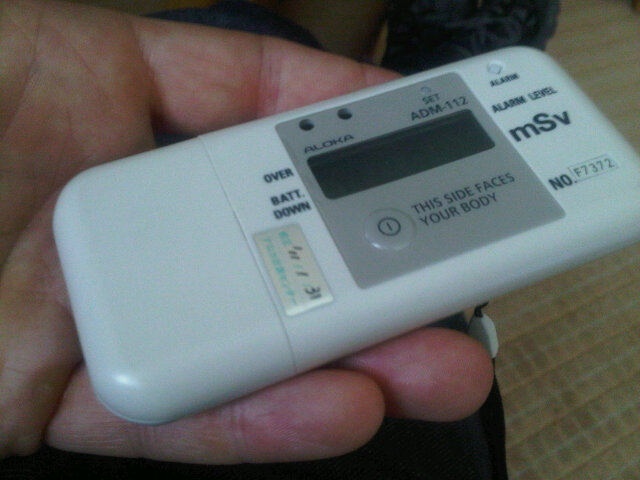
-
Vor 25 Jahren nervte mich die hysterische Berichterstattung von ARD, ZDF etc derart, dasss ich, damals noch nur mit Schulenglisch, zum stundenlangen BBC-Hörer wurde: auch dort Dramatik aus der Ungewissheit über den weiteren Verlauf heraus aber immer auf der Grundlage von recherchierten Fakten.
Dieses Mal steht jedem von uns die geballte Power von Tausenden am Thema interessierten Menschen im Web zur Verfügung.Viele von ihnen Experten in unterschiedlichsten Bereichen.
Leider verlinken traditionelle Medien nur sehr schlampig, gerade in Deutschland.
Seit Gutti wissen wir ja, wie wichtig es ist, seine Quellen offenzulegen aus denen man schöpft.

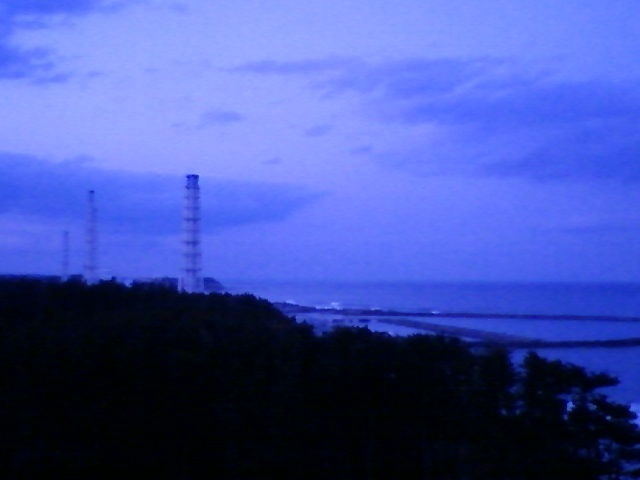
18.00 Uhr in Fukushima
-
Mr.Edano:The situation of Fukushima Daiichi Nuclear plant is showing gradual improvement though it’s still under unpredictable condition.
http://twitter.com/#!/JPN_PMO/status/49036931400601600
Sehr lesenswerte weitere tweets mit Ratschlägen, wie man sich in der "Zone" (20-30km um den Reaktor) schützen sollte, zu der radioaktiven Milch und Spinat aus der Zone, die man nicht konsumieren sollte (Dosis entspräche einer Computertomographie bei normalem Verbrauch dieser Lebensmittel während eines Jahres)
Hier ein dort veröffentlichtes PDF zum Strahlenschutz
http://www.mext.go.jp/english/topics/__icsFiles/afieldfile/2011/03/18/1303717_01 _1.pdf
Ein Bericht aus der Präfektur Fukushima und eine Einschätzung der Situation:
http://www.voanews.com/english/news/Confusion-anxiety-abound-near-Fukushima-1182 85529.html
So far, no Japanese official is declaring these efforts a success. Because the emergency workers on the site can only remain at the plant for brief periods and cannot get too close to the damaged reactors and spent fuel ponds it is impossible to ascertain the full extent of the damage and the level of the pools after three days of water spraying.
The best clues come from radiation monitoring, both on and off site. Those are the numbers to watch closely and which the domestic and international media should be quickly reporting while attempting to provide scientific context for those numbers. -
Man muss immer ein bischen auf die Details warten, weil Mr. Edano, Pressesprecher, ein Spin-God ist, der so verschwurbelt redet, dass die japanische Dolmetscherin von NHK Schwierigkeiten hat ihn zu übersetzen.
Halten wir fest, auch in über 100km Entfernung hat es grösseren Fallout gegeben. Das erklärt auch, warum die US eine Zone von 80km vorschlugen!
Es ist das alte Muster, zu den Abendnachrichten spinnt Herr Edano die Lage und in der Folge kommen die Rückschläge, werden aber weniger wahrgenommen.
BTW: Wer lässt sich oder seinen milchtrinkenden Kindern schon freiwillig jedes Jahr eine Computertomographie machen?
Es ist irreführend von Herrn Edano, wenn er unter den Tisch fallen lässt, welches Risiko I-131 für die Schilddrüse darstellt. Gerade bei Kindern!
Japan's health ministry said Saturday that abnormal amounts of a specific radioactive material have been detected in spinach grown about 120 kilometers (75 miles) away from the plant in neighboring Ibaraki prefecture.
The ministry also said that up to five times the normal amount of the same material was detected in milk from a town about 50 kilometers (about 30 miles) away from the plant.
...
The ministry detected higher-than-normal levels of a radioactive material called iodine-131 from spinach samples collected Saturday from six locations in Ibaraki prefecture, south of Fukushima.
One spinach sample collected from the city of Hitachinaka, located about 110 kilometers (about 70 miles) northeast of Tokyo, contained 8,420 becquerel per kilogram of iodine-131, according to the health ministry. The normal amount set by Japanese law is 2,000 becquerel per kilogram.
In milk samples collected from the town of Kawamata in Fukushima prefecture, 1,510 becquerel per kilogram of iodine-131 was detected, about five times the limit of 300 becquerel per kilogram set by law.
Mr. Edano said that the level of radioactive materials detected in the milk means that if a person drank the milk every day for a year, based on average Japanese milk consumption, the total exposure to radioactivity would be about the same as one CT scan. If a person ate the spinach in question for one year, the radioactivity would be about one-fifth of one CT scan, he said.
How does this work?
This is how you contribute to the prediction - See the Infocenter
Found an error?
Your Feedback?
Please send error messages and feedback by email to: help@wahlfieber.ch

